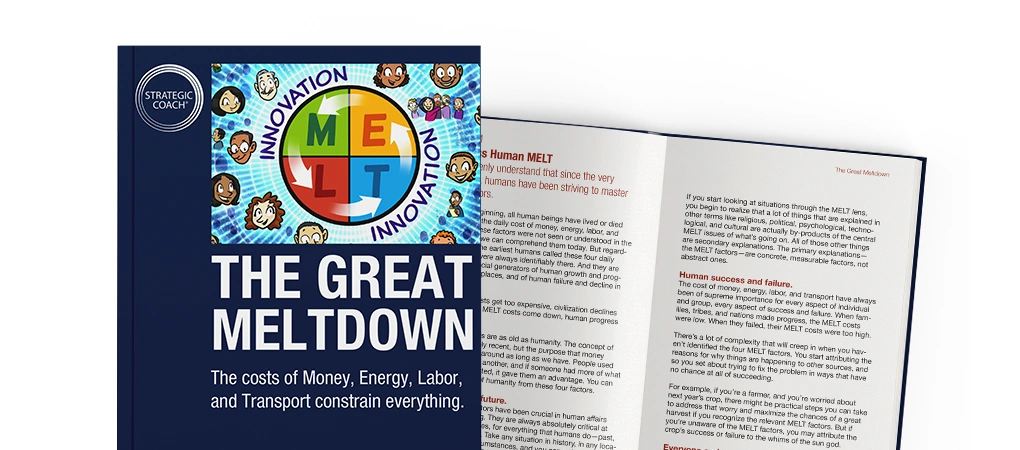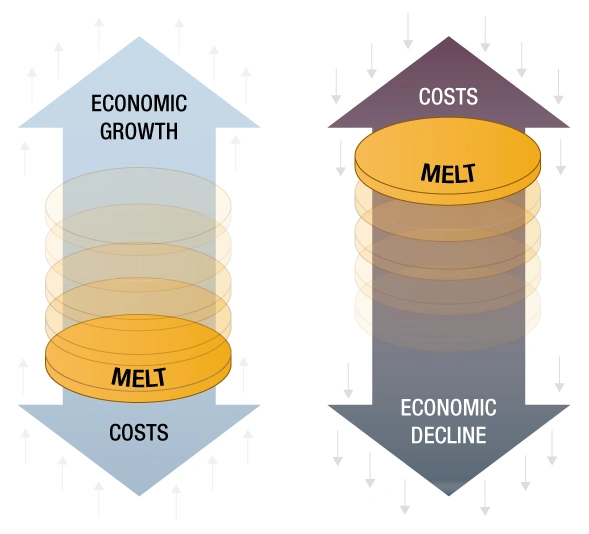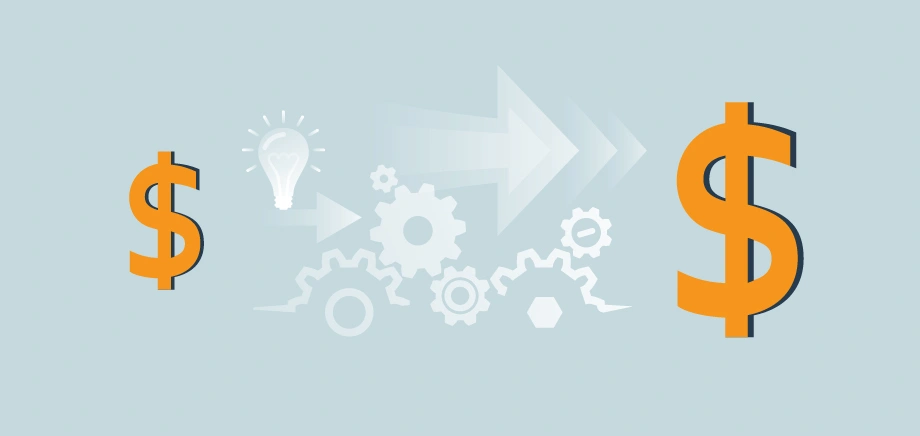The Great Meltdown: An Introduction
Dan Sullivan

In my latest short book, The Great Meltdown, I describe how the entire world is already experiencing a worldwide “Meltdown” in which bad news of high costs of Money, Energy, Labor, and Transport (MELT) for others can be good news for your entrepreneurial future over the next 30 years.
Here, I’ll briefly introduce the concept and explain how entrepreneurs can begin to think of the solutions they create during this global meltdown. This is only an introduction. Get your free copy of the book here!
MELT and “The Great Meltdown.”
The costs of MELT determine economic growth and progress or decline and collapse. Their combined, interactive costs are one simple, helpful indicator of the direction of economic performance in any market or industry.
In short, when the cost of the four MELT factors goes up, progress goes down.
But entrepreneurs—especially innovative entrepreneurs—go in the opposite direction of the crowd.
The crowd is always reactive, but entrepreneurs are always creative. They will zero in on the four areas of money, energy, labor, and transport to create new solutions because these four areas determine the cost of everything else.
The Great Meltdown is already occurring everywhere.
The costs of everything related to money, energy, labor, and transport are increasing. (This means everything, period.) As these next three decades proceed, I predict that the costs will stay high and keep rising in most places, except in the U.S., where costs will start going down.

MELT opportunities for entrepreneurs.
Globalism has hit a MELT wall. Big bureaucratic systems are falling apart, creating enormous opportunities for value-creating entrepreneurs to devise new solutions.
The Meltdown narrows the focus of where entrepreneurs should look for their greatest advantage: anything directly connected to the flow of lower-cost money, energy, labor, and transport to lower the cost for their particular clients and customers.
There’s a distinct link between MELT costs, equality, and politics, which is worth mentioning.
In situations where the MELT costs are low, inequality exists, but it’s not terribly uncomfortable. However, when the MELT costs rise, there’s a dramatic separation between people’s circumstances. Certain people are in a good enough position concerning MELT factors that their lives aren’t very much disrupted, while others’ lives are. And this is when politics—designed to deal with inequality without violence—becomes a factor.
Uniqueness as a unifier.
While two individuals may not be equal to each other in terms of MELT factors, as entrepreneurs, we’ve replaced equality with the concept of uniqueness.
If we take for granted that we’re unequal, we can look at the areas where each of us is unique and has no competitor. Then, we can combine our uniqueness. This concept of individual uniqueness unifies us all, regardless of what’s going on.








